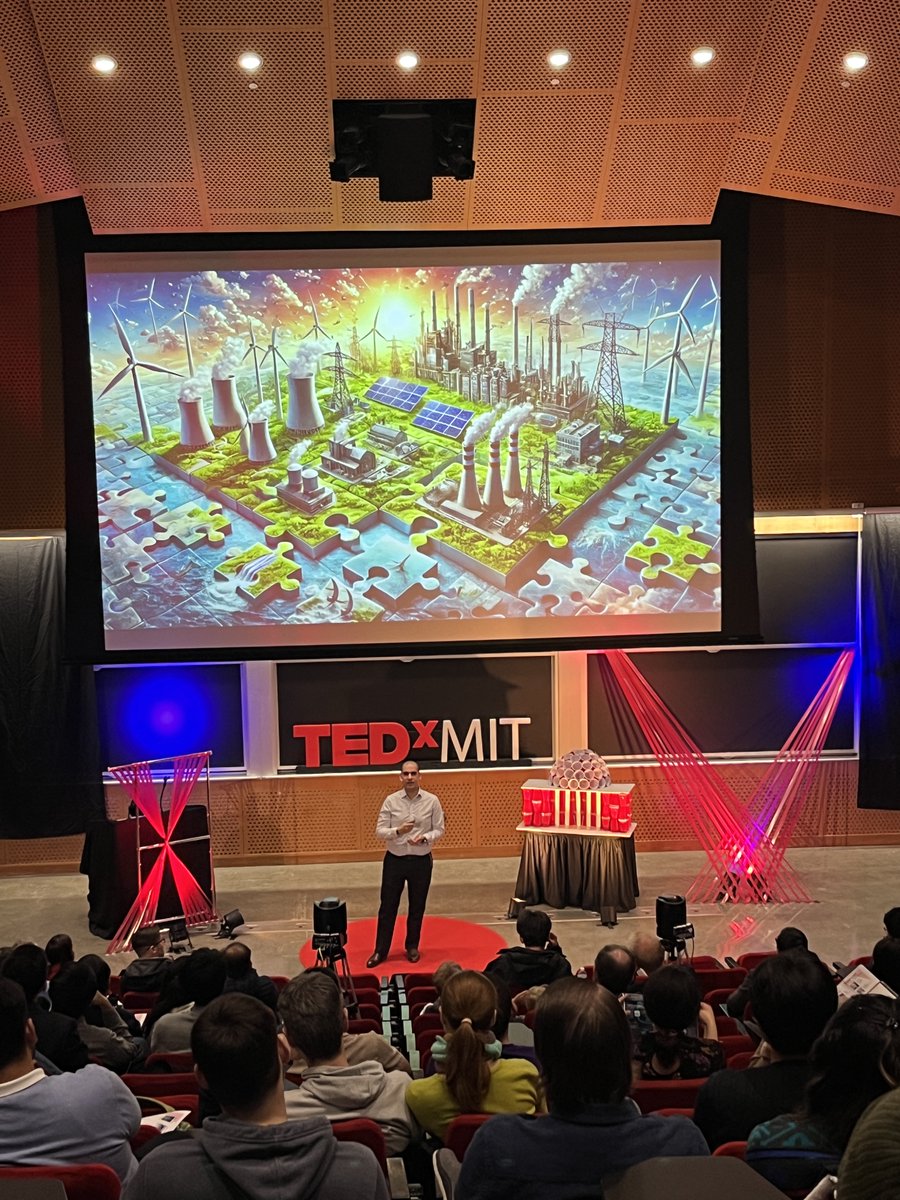
TEDxMIT
@TEDxMIT
Inspiring action through compelling ideas #TEDxMIT
Our Energy Efficient Computing speaker series event earlier today was a huge success! Recorded talks will be on our YouTube page shortly
Lily Janjigian, a graduate student studying computer science and machine learning, spoke about her current research in computer vision for agriculture mapping.

Our final speaker, Victory Yinka-Banjo, a senior at MIT majoring in CS & Molecular Biology, talks about creating a model of homegrown science to build a biotech future in Nigeria.

Next, Wojciech Matusik, a Professor of Electrical Engineering and Computer Science, investigated digital manufacturing and computer graphics.

Debbie Douglas, Director of the MIT Museum, presents on a fascinating electromechanical maze with a mechanical mouse, created by Claude Shannon to showcase how information travels in a telephone system.

Lauren Davis, an undergraduate senior studying biological engineering and brain and cognitive science, took a deep dive into models to accelerate the drug development process.

Dr. Fox Harrell, a Professor of Digital Media and AI at CSAIL, spoke about the importance of collaboration between humans and machines to create a better world and the expansion of AI through indigenous systems.

Lara Ozkan, a senior at MIT majoring in CS & Biology and an MIT Marshall Scholar, gave a fascinating talk on her research into women’s health and the cost of exclusion in women’s health.

Rickard Brüel Gabrielsson, a Co-Founder of Unbox AI with a PhD in AI from MIT, discusses how actions speak louder than Large Language Models and why actions are the key to Artificial General Intelligence.

Kicking off our AI in the Wild speaker series with Behnaz Farahi, an Assistant Professor at the MIT Media Lab and Director of the Critical Matter Group, explores how design and technology—ranging from wearable tech to public art—can open up new possibilities and amplify voices.

Vijay Gadepally, Senior Scientist at the MIT Lincoln Laboratory Supercomputing Center, explores the hidden environmental costs of AI, from generating stories to training large models, and how their energy use rivals that of entire nations.

Song Han, an Electrical Engineering and Computer Science Associate Professor, explores pruning & quantization techniques to shrink AI models while preserving performance, revolutionizing AI with efficiency.

Konstantin Rusch, a postdoctoral researcher at MIT CSAIL explains how oscillatory state-space models such as LinOSS are extremely energy efficient and outperform commonly used models.

Jacopo Buongiorno, Professor of Nuclear Science & Engineering at MIT, discusses how advanced nuclear reactors could revolutionize energy for AI data centers, offering carbon-free, reliable, and efficient power.

MIT Museum's Senior Director of Collections and Curation of Science & Technology, Debbie Douglas, explores the history of electrification, computing and the pioneering work of Phyllis Fox, connecting past challenges to modern innovation.

Emre Gencer, a Principal Research Scientist at the MIT Energy Initiative, tackles decarbonization analysis though creating a platform that models approaches for better decision-making in complex energy systems.

Bilge Yildiz, a Professor in the Departments of Nuclear Science and Engineering and Materials Science and Engineering, uses artificial ionic synapses and physical neural networks to create energy efficient brain-inspired AI hardware.

TEDxMIT's Energy Efficient Computing speaker series event starts with a performance by MIT's first mixed-voice a capella group performed: The Chorallaries.

Annika Thomas, a PhD candidate studying Mechanical Engineering at MIT working in the Aerospace Controls Laboratory, teaches robots how to perceive the world and align frames with other robots.

Cayden Pierce, a graduate student researcher at the MIT Media Lab focused on human-computer interaction, sensing, and consciousness, develops language learning smart glasses with translation features.
